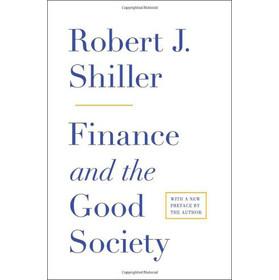A market economy is an economy in which decisions regarding investment, production, and distribution are based on market determined supply and demand, and prices of goods and services are determined in a free price system. Also, the exchange rate under such an economic system is free. However, the situation in some countries like China is a little bit different. Their economy is affected by not only free market, but the macro-regulation by government.
Free market economy is not a perfect economic system. Instead, it has some of disadvantages. We know it is a common condition where currency and exchange rate experience appreciation and depreciation under the free market economic system. But if an extreme appreciation or depreciation happens, only depending a market economy sometimes does not work. A government has just imposed a total set of exchange controls to prevent the exchange rate value of its currency from declining. That means the government will sustain its value of currency from depreciation. This measure will, bring two-sides effects, not positive but negative.
First of all, the government imposes control to prevent currency depreciation. What will depreciation bring to the economy?
1. In the period of depreciation, the goods price will be relatively lower than the price of foreign goods, thus making the domestic goods more competitive. Foreigners will intend to increase their demands of the import goods, meanwhile the domestic settlers will decrease the demands of export goods. It benefits export of the country instead of import. Put it into a specific example. It is about tourism. In the circumstance of depreciation, the purchasing power of foreign currency will grow and the price of domestic goods, labors, transportation and lodging go cheaper, attracting more foreign visitors to develop domestic tourism, and increase employment and national income.
But if the trend of depreciation is going deep, people will prefer to move their capital to foreign countries. It marks a capital outflow.
2.Experiencing a depreciation, the trade income of the country goes to grow. The share of international trade in whole economic system goes to increase, thus making a higher level of opening up and more domestic goods able to compete with foreign goods.
Depreciation also influences good price. If export goes flourishing, the demand of goods brings an increase of price. And gradually the increase of price will expand its coverage of all the goods, evoking imbalance of supply and demand, even a terrible inflation.
3.Depreciation in the major industrial countries will disorder the balance of payment in other countries. It may bring trade war and currency war. In the international business and lending, if a part receives depreciated currency in international trade, it will suffer a loss; the other part who pays for depreciated currency will make a profit.
The exchange rate of major industrial countries may also lead to a turmoil in economy worldwide. The world major currency is important for national reserve system and international economic system. In 1997, the Asian finance crisis, later spreading the whole world, is triggered by the depreciation of Thailand’s currency. At that time, Chinese government has announced seriously that RMB would not go depreciate. It was praised by the globe of China’s great contribution to the international economy.
Secondly, how the government control preventing declining works?
1.The government’s regulation preventing from depreciation will increase the confidence of citizens for their own currency. Generally speaking, the currency depreciation may cause some terrifying among people which is bad for the development of its economy.
2.A stable exchange rate can effectively avoid the speculative action in the international business. It
will make foreign businessmen to believe the value of the currency of a country.

Government control has some advantages, however it will still have negative side.
1.In such measure, government keeps the exchange rate of own currency by means of reducing its foreign currency reserve which is mainly used to do payment. So the reduction of the foreign currency reserve will have a negative effect on national outward paying capacity.
2.Government regulation is a temporary measure to stabilize the economic environment, not a long-term one. It can not address the problem primarily.
Government regulation is not a perfect measure to control the exchange rate, but if operate it properly, it will work effectively.
百度搜索“爱华网”,专业资料,生活学习,尽在爱华网
 爱华网
爱华网



